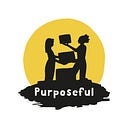Breakthrough Regional Court Hearing Gives Collective Voice for FGM Survivors and Campaigners
Economic Community of West Africa States (ECOWAS) court hearing marks a milestone breakthrough for frontline activists towards legal reform and the banning of Female Genital Mutilation/Circumcision (FGM/C) in Sierra Leone.
Last year, in an unprecedented strategic litigation move for the Sierra Leone feminist movement, frontline activists filed suit against the Government of Sierra Leone to enact a statutory ban on FGM/C. On 27 September the case was heard in the international spotlight of the West African regional court, representing 15 member states.
Led by Purposeful, 26 Sierra Leonean feminist movement campaigners in The Forum Against Harmful Practice, and the Institute for Human Rights and Development in Africa (IHRDA), the case calls attention to an FGM/C survivor from Kenema, in southern Sierra Leone, who was forcibly cut in 2016 and has been seeking justice ever since. Collective strategic litigation is an approach that makes achieving justice more likely, not only for the young woman survivor in Kenema, but also for the 230 million women and girls alive today who have been subjected to the violence of FGM/C. This litigation has the potential to influence policy and bring urgent national reform. The ECOWAS court hearing gives voice to the collective cry of those who have been long silenced, who finally now catch a glimpse of justice.
Sierra Leone continues to have one of the highest prevalence rates of FGM/C in the world despite being a signatory to the Maputo Protocol along with multiple other human rights treaties and conventions that affirm the illegality of FGM/C. This deadly prevalence showing over eight out of ten women between 15 and 49 years old have been cut persists despite high-profile deaths and political outcry.
For decades, feminist activists, survivors, and human rights defenders in Sierra Leone, have lobbied, organised, taken direct action and grown a nationwide groundswell of voices from the grassroots up, all demanding freedom from the patriarchal violence waged daily against girls and women. Since our homes, our streets and our own country have failed to offer us adequate protection from this injustice, the ECOWAS case seeks redress, showing the power of survivor centred advocacy on the world stage.
The Government of Sierra Leone is to be commended for moving forward progressive gender justice policies and laws, including the Gender Equality and Women’s Empowerment Act, the Child Marriage Bill and Child Rights Act, currently being debated in parliament, and that promises to protect children from FGM/C. But even if approved, it leaves a vast gap in the justice system, limiting the ban only to those under 18 years old. This loophole perpetuates the destructive norm that, beyond that age, a woman’s body becomes a fair game for control and abuse. The state’s failure to adopt and enforce legal protection fromagainst FGM/C for both girls and women, irrespective of age, violates the fundamental rights to dignity, security, freedom from torture, inhuman or degrading treatment.
As feminist activists, we have repeatedly sought international attention to the injustice of FGM/C and the push for legislative change. We will continue to insist that the government take an unequivocal stand, regardless of age, and fulfil its duty to safeguard the bodily autonomy of all girls and women. For, if it cannot protect us from this insidious form of violence, how then can we truly call ourselves a progressive nation? Anything less is selective and woefully performative.
Having now reached our day in the ECOWAS court, we now wait for judgement. We know that true liberation will only come when all forms of violence against girls and women are eradicated and our rights protected as equal in the eyes of the law.
By Josephine Kamara, Advocacy Director, Purposeful and Neneh Koroma, President of the Forum Against Harmful Practices
